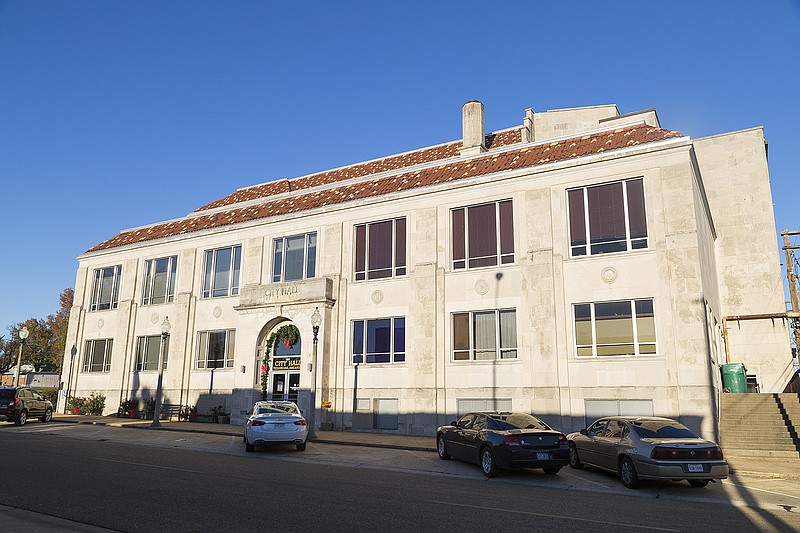A city official recently made clear how little funding is available to spend on Texarkana, Ark., streets.
Public Works Director Jeff Whitten told a Nov. 14 meeting of the Joint Texarkana Community Committee that all the resources now available to him would pay to replace only a few miles of roadway per year.
As a result, the city is prioritizing relatively minor street maintenance over big, unaffordable construction projects.
"We are on a preservation mode pretty much the same as the state's on right now, in that our biggest goal is to try to get some of the streets repaired, fixed, rehabbed, cleaned up and things like that," Whitten said.
Whitten walked the committee through what he called "Funding 101," showing examples of how little local property tax and state funding are allocated for possible street construction.
An Arkansas-side home appraised at $200,000 generates a maximum of $260 of property tax revenue spendable on city streets, for example, with $60 of that total earmarked for street work.
Twenty percent of the home's value, or $40,000, is taxable. The city levies a property tax of 10.5 mills on that $40,000, generating revenue of $420. Of that $420, $200 goes to the city's general fund and therefore is available to allocate to the Public Works Department.
Another 1.5 mills levied by the state, or $60, is returned to the city for use on streets. Sixty dollars would replace a strip of concrete street the width of the roadway and less than 4 inches long, Whitten said.
"Basically, put your fist up. You can pave that wide of a strip," he said.
Other revenue sources from the state will not go very far, either.
Highway revenues, highway severance and a half-cent sales tax totaled almost $2 million in revenue for the city in 2016. If the city used all of that money to replace roadways, it would pay for about 2 miles of concrete street or 3 miles of asphalt street, Whitten said.
Citizens should understand how difficult it is to pay for the street work they want, Arkansas-side Mayor Ruth Penney-Bell said.
"Everybody needs to know this. When you translate it into inches, it's like, 'Oh my gosh.' And we can't raise sales tax in Texarkana, Ark., because they can go right across the street and buy it for less. People who call and want something done immediately need to see this. Everybody needs to see this," she said.
An initiative of the Texarkana USA Chamber of Commerce, the JTCC comprises Texas-side City Council members, Arkansas-side Board of Directors members and both mayors. It formed last fall to share ideas and discuss common challenges facing both cities but is not set up to take any action.
Penney-Bell, Arkansas-side Ward 6 Director Terri Peavey, Texas-side Mayor Bob Bruggeman and Texas-side Ward 6 Council Member Josh Davis attended the Nov. 14 meeting.
On Twitter: @RealKarlRichter

